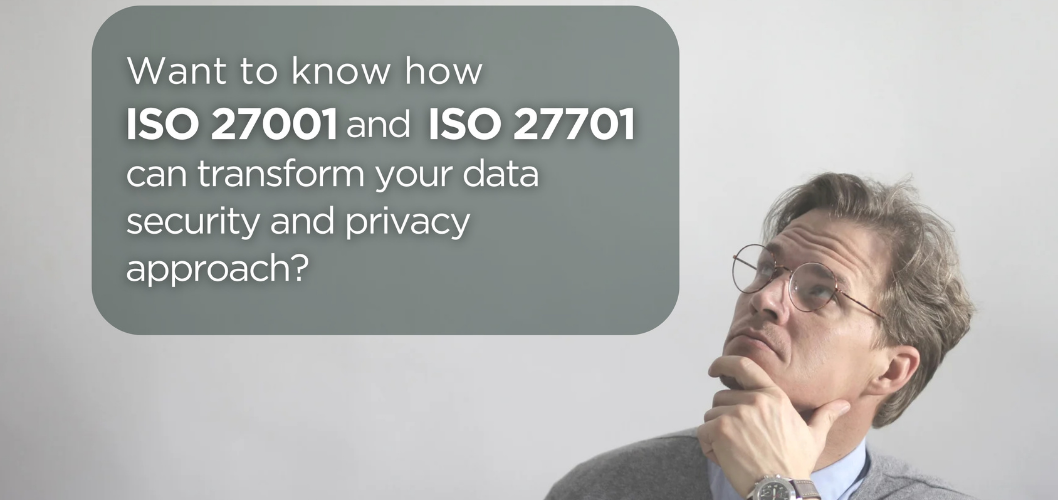In today's digital landscape, safeguarding sensitive information is paramount. Organizations face increasing challenges in protecting data against breaches and ensuring compliance with stringent privacy regulations. Implementing robust frameworks like ISO 27001 and ISO 27701 can significantly enhance an organization's information security and privacy posture.
Understanding ISO 27001
ISO/IEC 27001 is an internationally recognized standard for establishing, implementing, maintaining, and continually improving an Information Security Management System (ISMS). It provides a systematic approach to managing sensitive company information, ensuring its confidentiality, integrity, and availability.
Key Components of ISO 27001:
- Risk Assessment and Treatment: Identifying potential security risks and implementing appropriate controls.
- Security Policy Development: Establishing policies to guide information security efforts.
- Asset Management: Ensuring proper handling of information assets.
- Access Control: Restricting access to information based on business needs.
- Incident Management: Preparing for and responding to security incidents effectively.
By adhering to ISO 27001, organizations can proactively manage information security risks and build trust with stakeholders.
Introducing ISO 27701
ISO/IEC 27701 serves as an extension to ISO 27001, focusing specifically on privacy information management. It provides guidelines for establishing, implementing, maintaining, and continually improving a Privacy Information Management System (PIMS). This standard is particularly relevant for organizations that process personally identifiable information (PII), helping them comply with privacy regulations such as the General Data Protection Regulation (GDPR) and the California Consumer Privacy Act (CCPA)
Key Features of ISO 27701:
- Privacy Risk Assessment: Identifying and mitigating risks related to personal data processing.
- Data Subject Rights Management: Ensuring mechanisms are in place to uphold individuals' privacy rights.
- Third-Party Management: Establishing controls for data processors and third-party service providers.
- Transparency and Accountability: Documenting and demonstrating compliance with privacy obligations.
Implementing ISO 27701 enables organizations to integrate privacy considerations into their existing ISMS, creating a comprehensive approach to information security and privacy management.
Integrating ISO 27001 and ISO 27701
Combining ISO 27001 and ISO 27701 allows organizations to address both information security and privacy requirements cohesively. This integrated approach offers several benefits:
- Unified Risk Management: Streamlining processes to manage risks related to both information security and privacy.
- Operational Efficiency: Reducing duplication of efforts by aligning security and privacy controls.
- Simplified Compliance: Facilitating adherence to multiple regulatory requirements through a single framework.
- Enhanced Stakeholder Confidence: Demonstrating a comprehensive commitment to protecting information assets and personal data.
By adopting both standards, organizations can create a robust foundation for managing information security and privacy risks effectively.
Benefits of Implementing ISO 27001 and ISO 27701
Organizations that implement ISO 27001 and ISO 27701 can realize numerous advantages:
- Regulatory Compliance: Aligning with global data protection laws, reducing the risk of legal penalties.
- Risk Reduction: Proactively identifying and mitigating potential security and privacy threats.
- Customer Trust: Enhancing reputation by demonstrating a commitment to data protection.
- Competitive Advantage: Differentiating from competitors through certified security and privacy practices.
- Continuous Improvement: Establishing a culture of ongoing evaluation and enhancement of security and privacy measures.
These benefits contribute to the overall resilience and success of an organization in the digital age.
Conclusion
In an era where data breaches and privacy concerns are increasingly prevalent, implementing ISO 27001 and ISO 27701 standards is a strategic move for organizations aiming to strengthen their information security and privacy frameworks. These standards provide a comprehensive approach to managing risks, ensuring compliance, and building trust with stakeholders. By integrating these frameworks, organizations can navigate the complex landscape of data protection with confidence and integrity.
.png)